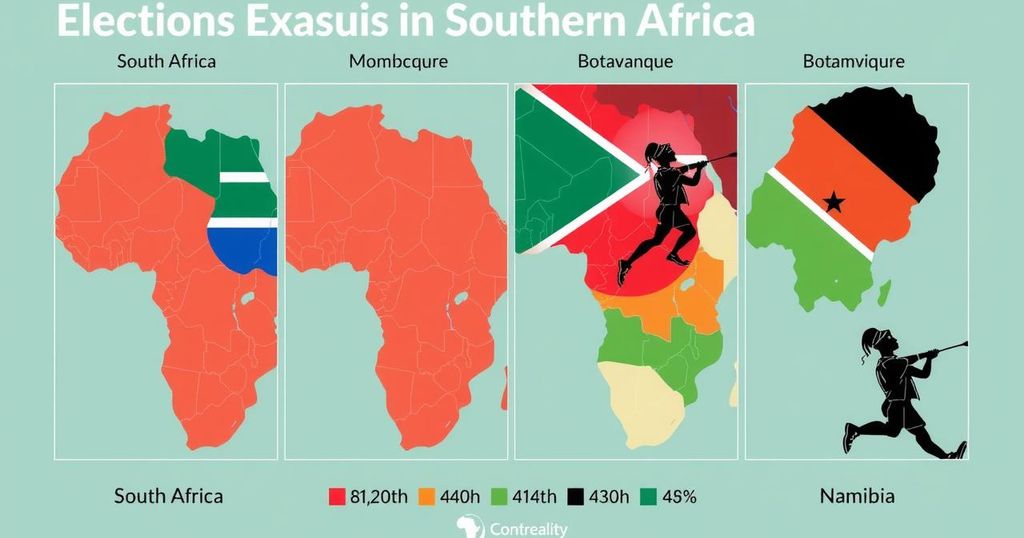The 2024 elections in Southern Africa, characterized by significant political shifts in South Africa, Mozambique, Botswana, and Namibia, highlight a rising demand for political renewal. The outcomes reveal increasing pressure on traditional liberation movements as younger electorates seek accountability and social justice amid historical grievances and economic challenges. Each country’s distinctive electoral context underscores the need for tailored analyses rather than generalized conclusions about regional change.
The 2024 election outcomes across Southern Africa reveal a quest for political renewal, characterized by unique circumstances in South Africa, Mozambique, Botswana, and Namibia. Analysts suggest that the establishment of a coalition government in South Africa, resulting from the African National Congress (ANC) losing its majority, may signal the onset of a post-liberation movement era in the region. In October, Botswana witnessed a shift with the opposition Umbrella for Democratic Change (UDC) achieving a parliamentary majority, indicating a desire for change among citizens discontented with existing governance. Conversely, Mozambique’s elections saw the ruling Front for the Liberation of Mozambique (FRELIMO) maintain power amid allegations of fraud and rising public dissent, particularly among urban middle-class citizens demanding reforms. Namibia’s recent elections reaffirmed the incumbent South West Africa People’s Organisation (SWAPO) in power, despite calls for change amidst technical election issues. These electoral dynamics reveal a significant evolution in the political landscape of Southern Africa, where former liberation movements face increasing pressure from younger, more urbanized electorates demanding accountability and social justice.
The political landscape in Southern Africa reflects a complex interplay of historical and contemporary dynamics. Many countries in the region are primarily governed by former liberation movements that emerged from colonial struggles, which now face substantial scrutiny due to internal governance challenges, economic stagnation, and social inequalities. The 2024 elections represent crucial turning points, where electoral outcomes not only reflect political preferences but also signify deeper societal demands for change, performance accountability, and responsiveness to the needs of the younger population. Analysts emphasize the necessity of understanding each country’s individual context rather than adopting a one-size-fits-all narrative of change.
The electoral events across Southern Africa in 2024 illustrate a pivotal stage in the region’s political evolution. The outcomes highlight a widespread demand for renewal, driven by younger populations disillusioned by historical liberation movements. As voters increasingly prioritize contemporary socio-economic issues over past struggles, ruling parties are urged to address pressing concerns regarding inequality, unemployment, and corruption. Ultimately, these elections serve as a clear indication that former liberation movements must adapt to the evolving political landscape to maintain their legitimacy and support.
Original Source: www.fairobserver.com






